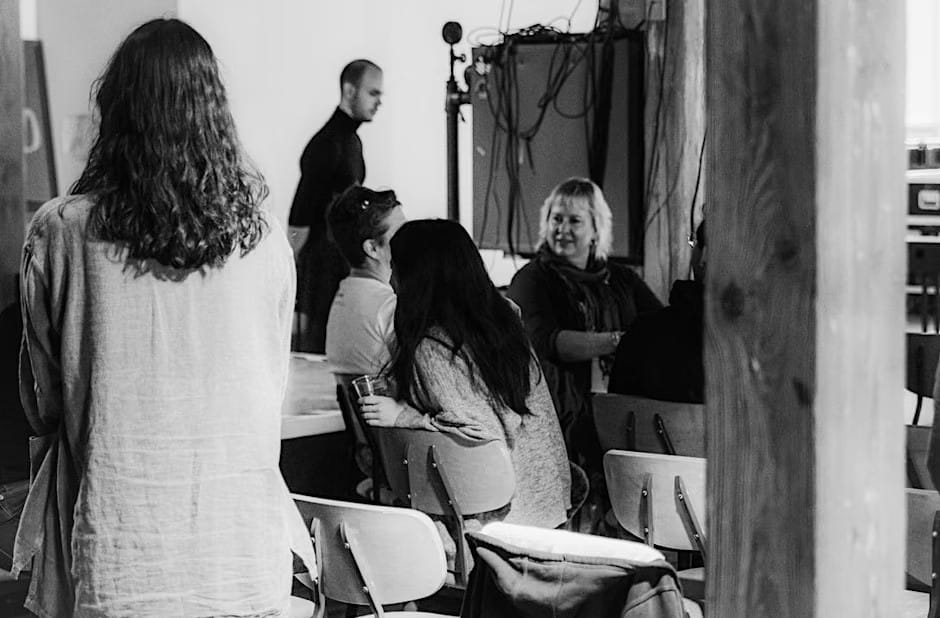Experimental Art in Toronto: Working Group: Feb. 26, 2025
UKAI Projects will be hosting a series of conversations in our space at 379 Adelaide St. W (4F) to explore strategies to revitalize artistic activity in Toronto through planning, coordination, resource sharing, and collective audience engagement.

This is a working group session where ideas set out in the broader strategy sessions will be moved forward (implementation as opposed to strategy development)
register or find out more here
Experimental arts organizations and artists in Toronto and across Canada are experiencing considerable stress. Funding and other infrastructure favors larger, established institutions that draw on traditional disciplines and approaches. Arts funding is being reduced and timelines to receive a response from the Canada Council doubled (from 4 months to 8 months) with no notice and no time offered to adapt.
Toronto is increasingly unlivable. Mainstream arts institutions pay lip service to climate damage and rising authoritarianism while soliciting support from those that benefit from and contribute to this volatility.
UKAI Projects will be hosting a series of conversations in our space at 379 Adelaide St. W (4F) to explore strategies to revitalize artistic activity in Toronto through planning, coordination, resource sharing, and collective audience engagement among arts organizations that prioritize experimental work.
This initiative is designed to fill critical gaps in the use of vacant urban spaces, promote the sustainability of the arts sector, and enhance public cultural participation.
Proposed Activities:
Working Group and Network Development: Form a core group to build out networks of support and strategies to generate new sources of revenue.
Strategic Planning Workshops: Conduct a series of workshops (public facing) to develop collaborative strategies for utilizing spaces effectively and to amplify efforts by others. These workshops will gather input from attendees to create strategies for experimental arts programming in the area.
Coordination of Resources: Establish resource-sharing networks that allow organizations to pool and allocate resources such as spaces, equipment, and expertise more effectively.
Collective Audience Engagement Programs: Develop and implement audience engagement strategies that leverage the collective strengths and creative capacities of the participating organizations to attract diverse groups of spectators and participants.
